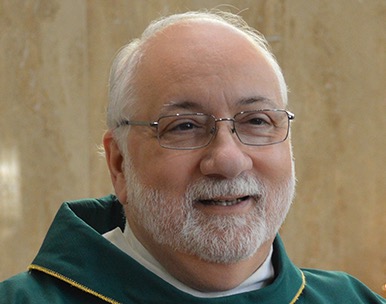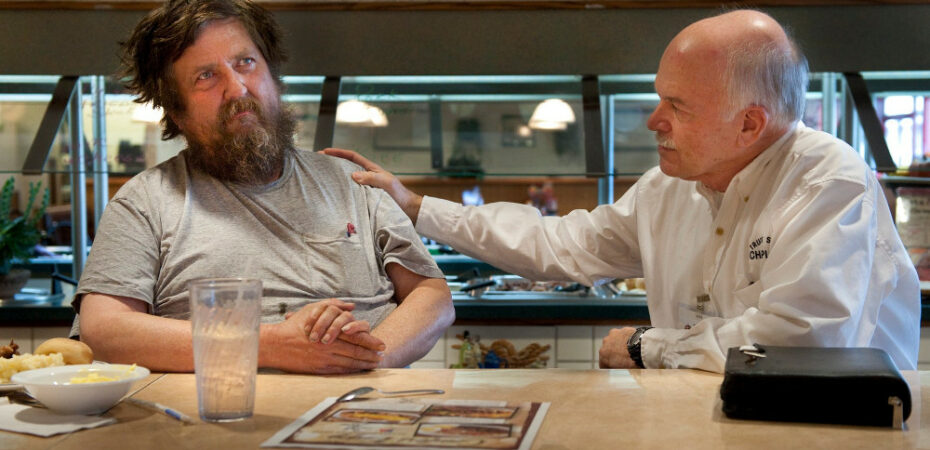Renewing the Church Through the Diaconate
Ministry permeates every aspect of the deacon’s life
Deacon Dominic Cerrato Comments Off on Renewing the Church Through the Diaconate
 The title of my column might sound to many as rather ambitious. I mean, the diaconate is just there to help priests, right? While this is certainly true to some degree, it fails to see the distinctive role of the diaconate in the mystery of salvation and the mission of the Church.
The title of my column might sound to many as rather ambitious. I mean, the diaconate is just there to help priests, right? While this is certainly true to some degree, it fails to see the distinctive role of the diaconate in the mystery of salvation and the mission of the Church.
The unique contribution of the diaconate, that which gives it its distinguishing characteristic, is the revelation of Christ the Servant to the whole Church. This is to say that, by virtue of being configured to Our Lord ontologically (at the deepest level of our being), the deacon is called to incarnate Christ the Servant throughout his entire life. Consequently, his diaconate is not simply confined to his ministry when ministry is understood in the narrow sense of liturgy, word and charity. Rather, because he is (ontologically speaking) a deacon, ministry is now expanded to the sum total of his activities flowing from his vocations.
This broader sense of ministry means that his diaconate permeates and penetrates every aspect of his life. There’s nowhere he can go and not be deacon, and, unless he consciously rejects the God who called him, there’s nothing he can do that is not diaconal.
This approach to the diaconate reveals a kind of integrity in which his actions flow directly from his being. By cultivating the interior life, by drawing closer to Christ the Servant, the deacon becomes sensitive to the needs of others and, having received divine love himself, now passes that love on through sacred ecclesial service.
While most deacons are aware of this reality, we often understand our service as directed exclusively to the laity. Although there’s much truth to this, taken exclusively, it hides more than it reveals. The object of diaconal ministry, the focus of our service, is not first and foremost to the laity, but instead to God, in and through the laity. In other words, it’s the Christ in the other that we serve, and it’s this same Christ that transforms our diakonia from social work to ministry, from a good thing to a saving reality.
As noted above, the unique contribution of the diaconate, that which gives it its distinguishing characteristic, is the revelation of Christ the Servant to the whole Church. The whole Church consists not only of the laity, but of the clergy as well. It’s the deacon’s role to incarnate Christ the Servant in a way that inspires and emboldens the laity to realize servanthood in their own particular vocations. This is also true of bishops and priests.
Bishops and priests share in the diaconate by virtue of their diaconal ordination. Because that ordination imparts an indelible character that configures them to Christ the Servant, they do not cease being deacons when they are ordained to the presbyterate and episcopate.
Consider this: The Greek term diakonia is translated into the Latin word ministerium which, in turn, is translated into the English word ministry. Consequently, when we speak of the ministry of the priesthood, we are speaking of the diakonia of the priesthood. Likewise, when we speak of the ministry of the bishop, we are speaking of the diakonia of the bishop. Indeed, how is it even possible to exercise the priesthood and episcopacy without diakonia? It’s through their diaconate that the priest is able to exercise priestly service and, through his diaconate, that the bishop is capable of exercising episcopal service.
All of this means that the diaconate, far from simply being Father’s helper, has a unique role to fulfill in the life of the Church. By living out our vocation, we bear witness to Christ the Servant so that others, whether laity or clergy, may also bear that same witness. In doing so, the diaconate plays an integral and essential part in renewing the Church.
DEACON DOMINIC CERRATO, Ph.D., is editor of The Deacon and director of diaconal formation for the Diocese of Joliet, in Illinois. He is the founder of Diaconal Ministries, where he gives national presentations and retreats to deacons and diaconal candidates. Follow him on Facebook to continue the conversation.





